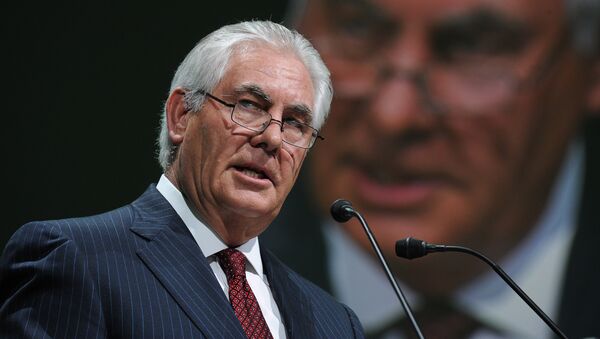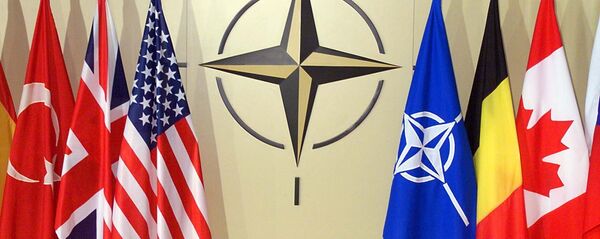"Here is a ‘to do’ list for Secretary of State Tillerson: Start with repairing relations with Europe," Schirach, Vice President of BAU International University and President of the Global Policy Institute, said.
The ability of the United States to deal with crises more effectively depends in large measure on having solid partners who are traditional allies backing its actions, Schirach explained.
However, "This is no longer the case, because relationships with traditional allies have not been properly cared for," he warned.
President Donald Trump repeatedly declared during his election campaign that NATO had become obsolete, but he gave no indication what he would replace the military alliance with and Tillerson would have to grapple with this question, Schirach pointed out.
"Is NATO obsolete? Maybe so: But then, what is plan going forward? Are we going to let the alliance wither into irrelevance? Or are we going to think of an updated modality to guarantee future transatlantic security cooperation?" he asked.
"If NATO is indeed an old mechanism: what about economic and trade relations? If the TTIP is not a good idea: what about other vehicles for strengthening Euro-American economic and trade relations?" he asked.
Tillerson also needed to improve US relations with the major European nations to fulfill Trump’s goal of bringing more effective international pressure to bear on Iran, Schirach noted.
"The United States needs to fashion a new coalition to effectively deal with Iran. It is clear that Washington cannot effectively act alone. Without close consultations and cooperation with its European allies and key Middle East countries, it will be almost impossible to fashion a policy ‘with teeth’," he said.
Iran was counting on the fact that deep divisions between the United States and Europe as well as between the United States and Turkey or Saudi Arabia will allow it to have a free hand, Schirach observed.
"Trump came into office with the idea that America can and will be very selective in picking its foreign policy engagements. But, I hope Tillerson will convince him that foreign policy engagement does not mean reckless and costly interventions," Schirach said.
Engagement may very well be the tool that will allow the United States to build coalitions that will deter aggressive powers in order to preserve the peace, Schirach added.




